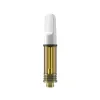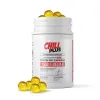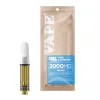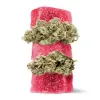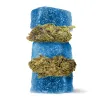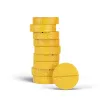Hemp-derived delta 9 and THCA are two prominent compounds derived from the cannabis plant, but which one is stronger?
Delta 9, commonly found in cannabis and referred to as THC, is a psychoactive cannabinoid known for inducing intoxicating effects. Sourced primarily from cannabis flower, delta 9 is sought after for its euphoric and relaxation-inducing properties.
THCA, or tetrahydrocannabinolic acid, serves as the acidic precursor to THC present in raw cannabis. Unlike delta 9, THCA does not exhibit psychoactive properties until it undergoes decarboxylation, typically through heat.
So, in its decarboxylated form, THCA becomes THC, which is just another way to say delta 9. This makes decarboxylated THCA and delta 9 are the exact same compound! Confused? Let us explain.
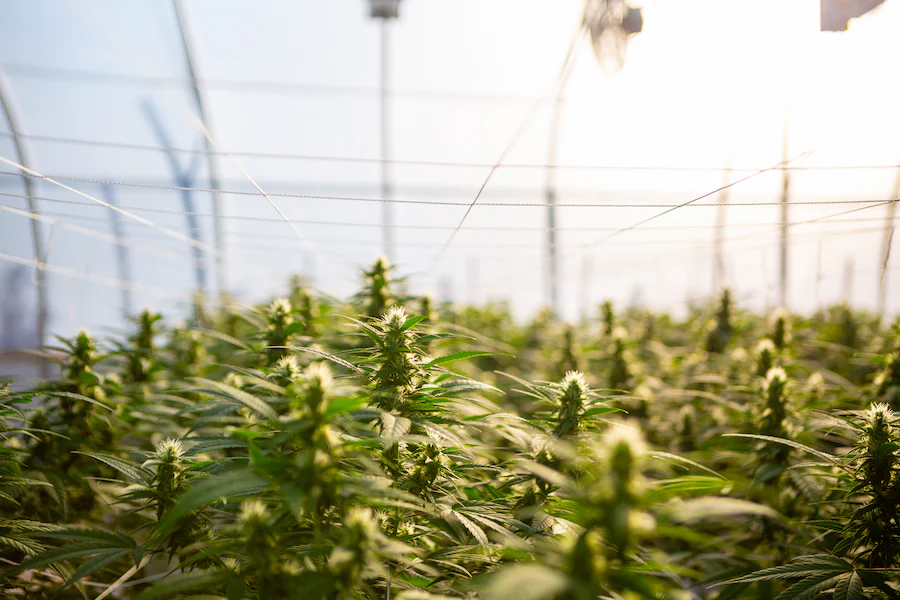
Understanding Hemp-Derived Delta 9
Delta 9, scientifically termed delta-9-tetrahydrocannabinol, is a primary psychoactive compound present in cannabis plants. It is abundantly found in marijuana and, to a lesser extent, in hemp. The compound is derived from the resinous glands of the cannabis plant, known as trichomes, primarily concentrated in the flowering tops, leaves, and stems.
Delta 9 is revered for its potent psychoactive properties. Once consumed, it binds to cannabinoid receptors in the brain and nervous system, inducing various effects. Users often experience altered perception, euphoria, relaxation, and an uplifted mood.
This compound is commonly used for recreational purposes due to its ability to create a "high" or intoxicating effect, sought by those seeking a relaxing or euphoric experience.
The strength and potency of delta 9 products depend on multiple factors, including dosage, method of consumption, and individual tolerance. The compound's potency can range from mild to strong, depending on the concentration and purity of delta 9 within a product.
Its psychoactive effects are known to be powerful, necessitating careful dosing and consideration of individual sensitivities to achieve the desired effects without experiencing adverse outcomes.
Understanding THCA
THCA, or tetrahydrocannabinolic acid, is a non-intoxicating cannabinoid found in raw and live cannabis plants. It is the acidic precursor of THC, existing abundantly in the live cannabis plant before undergoing decarboxylation, a process triggered by heat, to become THC.
THCA is primarily found in raw cannabis flowers, leaves, and stems.
In its raw form, THCA doesn't induce the intoxicating high associated with THC. Current research suggests that THCA doesn't directly bind to the endocannabinoid receptors in the same way as THC. Some anecdotal evidence and preliminary studies indicate that THCA products may possess anti-inflammatory, neuroprotective, and antiemetic properties, potentially contributing to the compound's therapeutic effects.
THCA's strength, unlike THC, is considered non-psychoactive unless exposed to heat through processes like smoking, vaping, or heating during cooking. In its unheated form, THCA doesn't produce the euphoric effects commonly associated with THC.
Its potency and effects might vary based on the method of consumption and individual response, with some users reporting mild relaxing effects without the intense psychoactive outcomes linked to THC consumption.
Once THCA undergoes decarboxylation, however, it becomes THC, also known as delta-9-tetrahydrocannabinol. Sound familiar?
Comparative Analysis: Strength and Effects
Hemp-derived delta 9, upon activation, is known for its psychoactive potency, offering users a distinct euphoric experience associated with THC.
Delta 9 is renowned for its potency in delivering immediate and noticeable psychoactive effects, whereas THCA requires decarboxylation to convert into THC to exert this same exact psychoactive strength.
Psychoactive Effects: Delta 9 vs. THCA
Delta 9's psychoactive effects are well-documented, inducing euphoria, heightened sensory perception, relaxation, and altered perception of time. In contrast, THCA's unheated form is considered non-intoxicating and does not deliver the classic 'high' associated with THC.
The psychoactive impact of THCA, upon activation through smoking, vaping, or cooking, is exactly the same as THC’s, due to the fact that once the acidic compound is decarboxylated, it becomes THC!
Duration and Onset Times
Delta 9's effects onset rapidly, often within minutes to half an hour, and may last for several hours depending on dosage and individual tolerance. Conversely, THCA's onset and duration may vary widely based on the method of consumption and the degree of decarboxylation.
The effects of THCA, when activated, have the same exact onset and duration as delta 9.

Legal Considerations
Hemp-derived delta 9's legal status largely aligns with regulations governing THC. In jurisdictions where THC from hemp is permitted, delta 9 within the legal limit is generally considered lawful.
However, the legality of delta 9 varies across states, subject to local laws and restrictions, especially in places where THC concentrations, including delta 9, exceed legal thresholds.
This legality can influence product availability and user choices, often necessitating adherence to specific THC concentration limits to avoid legal ramifications.
-
Delta 9 Legality:
-
Aligned with THC regulations in jurisdictions where THC from hemp is permitted.
-
Subject to local laws and restrictions based on THC concentration limits.
-
Varies across regions and influences product availability and user choices.
-
-
THCA Legal Status:
-
Aligned with THC regulations in jurisdictions where THC from hemp is permitted.
-
In its unheated state, THCA might not fall under regulations governing psychoactive substances.
-
Legal distinctions between inactive and activated forms can impact distribution, sales, and user preferences.
-
-
User Decision-Making Factors:
-
Prioritizing compliance with local regulations to avoid legal issues.
-
Preference for substances deemed legal within jurisdictions.
-
Guidance toward products aligned with permissible THC levels and legal requirements.
-
Safety and Health Implications
Scientific evidence indicates minimal inherent health risks associated with hemp-derived delta 9 and THCA.
Delta 9, when used within recommended limits, generally poses few direct health hazards. However, excessive consumption may lead to temporary side effects such as increased heart rate, impaired coordination, or anxiety in susceptible individuals.
THCA, in its unheated form, isn't typically associated with psychoactive effects, suggesting a low risk of immediate adverse health reactions. Nonetheless, long-term health implications of prolonged THCA exposure remain an area warranting further investigation.
|
Aspect |
Delta 9 |
Raw THCA |
|---|---|---|
|
Health Risks |
Possible adverse effects such as:
These effects occur especially in high doses or sensitive individuals. |
Generally considered non-psychoactive and lacks typical intoxicating effects associated with THC. |
|
Recommended Usage and Dosages |
|
|
|
Insights from Studies or Medical Opinions |
Studies suggest potential therapeutic benefits, including:
|
|
Scientific studies offer valuable insights into the safety profiles and potential health implications of hemp-derived delta 9 and THCA. Current research suggests that both compounds exhibit favorable safety profiles, especially in their raw forms.
Medical opinions stress the importance of responsible use, understanding individual thresholds, and considering legal restrictions. Further scientific exploration is crucial to comprehensively assess any potential long-term health effects and establish precise dosing guidelines for these compounds.
User Experiences and Testimonials
Anecdotal evidence and user testimonials regarding hemp-derived delta 9 and THCA suggest diverse experiences. Users have reported distinct encounters with each compound. Delta 9 users often describe a euphoric, relaxing high, accompanied by alterations in perception and mood.
THCA, in its unheated form, has been linked to purported benefits without psychoactive effects, as reported by users.
User-reported experiences showcase varied effects. Delta 9 users commonly highlight its potent psychoactive effects, including increased relaxation and altered sensory perception. The same is true for users who consume decarboxylated THCA.
Conversely, THCA users tend to emphasize its non-intoxicating properties and potential therapeutic benefits, such as reported relief from pain or inflammation without experiencing a high.
Users' experiences with hemp-derived delta 9 and THCA illustrate the diversity of effects and outcomes. Individuals seeking psychoactive effects might prefer delta 9, while those seeking therapeutic benefits without intoxication might lean towards THCA.
These diverse user-reported experiences underscore the importance of individual preferences and objectives in choosing between the two compounds.
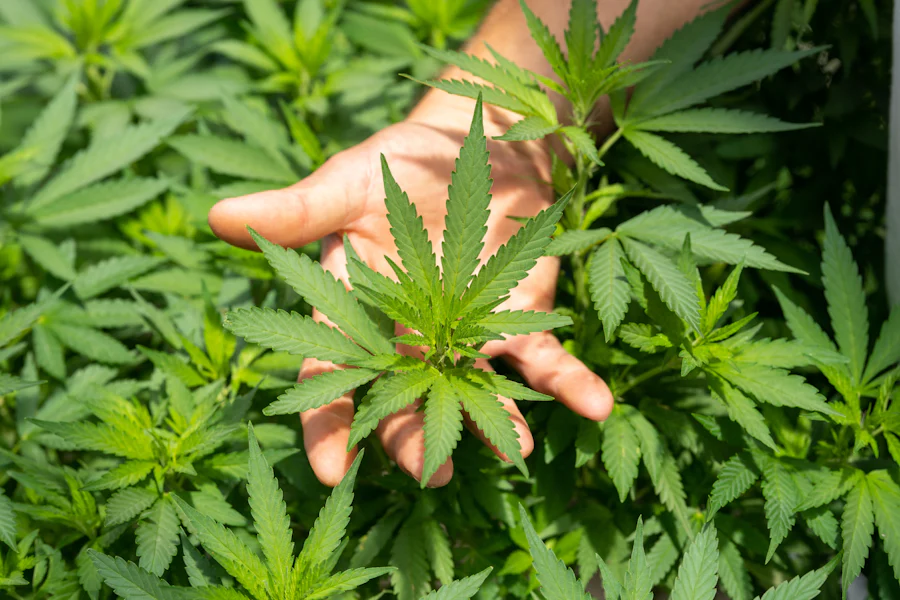
THCA vs. Delta 9: Frequently Asked Questions
Curious about the differences between hemp-derived delta 9 and THCA? Dive into our comprehensive FAQ section for insights into these compounds.
Explore answers to frequently asked questions to navigate the realm of hemp-derived compounds effectively.
What's the main difference between hemp-derived Delta 9 and THCA?
Both compounds originate from hemp but vary in their effects. Delta 9 is psychoactive, inducing a high when heated, while THCA, in its raw form, is non-intoxicating and requires decarboxylation to become psychoactive THC.
Can THCA produce a high?
In its raw form, THCA doesn't produce a high. Only when exposed to heat or decarboxylation does it convert into psychoactive THC, generating intoxicating effects.
Are there specific medical benefits associated with each compound?
Both delta 9 and THCA have shown potential therapeutic benefits, but their effects vary. Delta 9 is commonly used for its analgesic and antiemetic properties, while THCA is being studied for its anti-inflammatory and neuroprotective potential without causing intoxication.
Can these compounds cause addiction or dependence?
Neither delta 9 nor THCA has been conclusively linked to addiction or physical dependence. However, as with any substance, excessive use or abuse may lead to dependency in some individuals.
How do I choose between Delta 9 and THCA?
Your choice depends on your objectives. If seeking therapeutic benefits without psychoactive effects, THCA might be more suitable. If seeking a euphoric high, delta 9 (or decarboxylated THCA) could be preferable. Consider individual needs, legal regulations, and desired effects when choosing between these compounds.
Can THCA be detected in drug tests?
Standard drug tests typically screen for THC, not THCA. However, some tests might identify the presence of THC after THCA undergoes decarboxylation.
Are there alternative consumption methods besides smoking?
Both delta 9 and THCA can be consumed through various methods such as edibles, tinctures, or topical applications, providing different onset times and durations of effects.
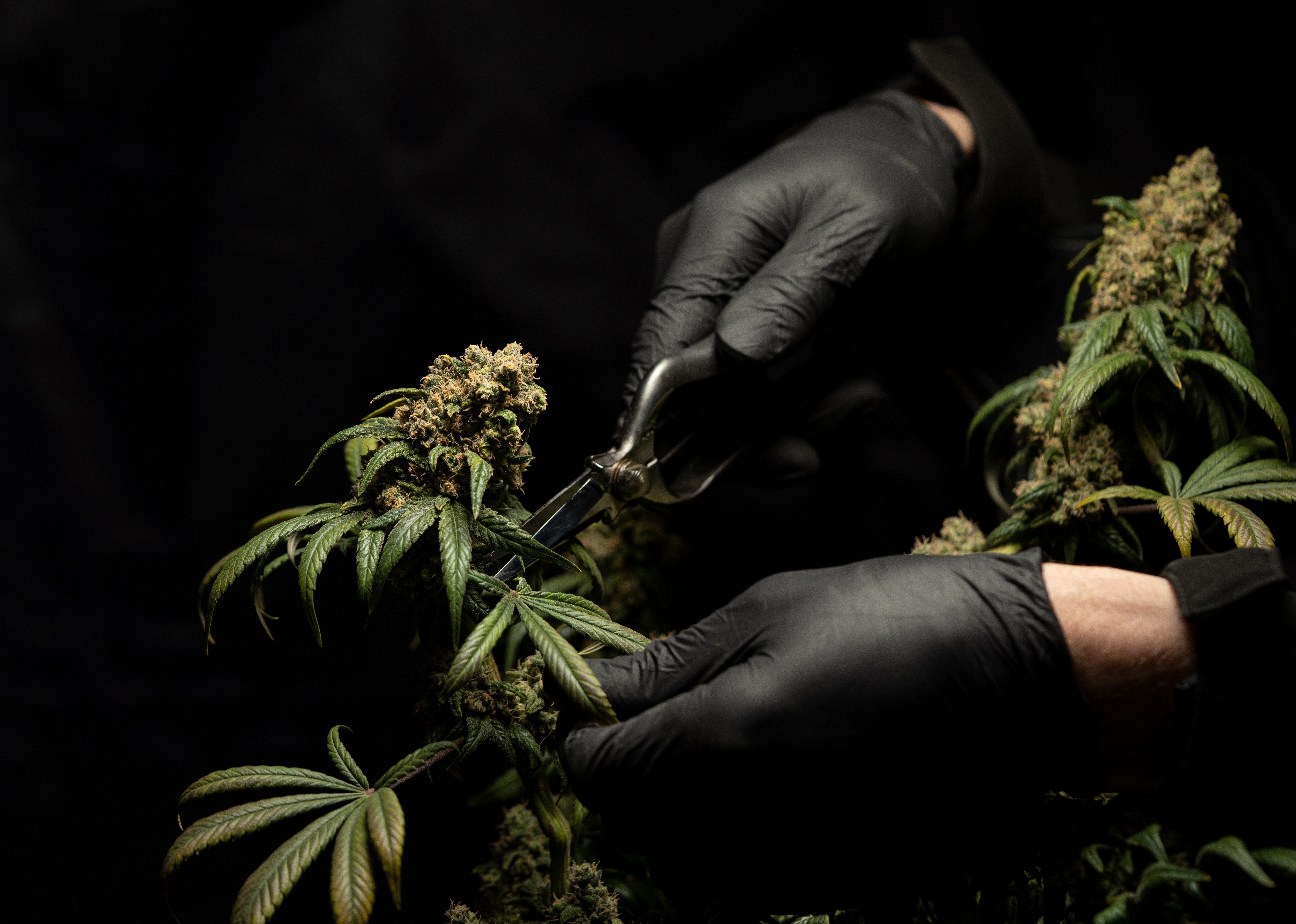
Deciphering Delta 9 and THCA: Choosing Strengths for Individual Needs
The comparative exploration between hemp-derived delta 9 and THCA reveals distinctive aspects of these cannabinoids.
Delta 9, known for its psychoactive properties, stands as a more potent compound, inducing euphoria and altering perception. Conversely, THCA, in its raw form, lacks psychoactivity, offering potential therapeutic benefits without the traditional "high."
Upon weighing the strengths and effects of delta 9 and THCA, the choice between them hinges on individual preferences and desired outcomes.
While delta 9 holds stronger psychoactive potential, raw THCA, with its non-intoxicating properties, appeals to users seeking therapeutic relief without euphoria. The decision ultimately relies on what you as a user are looking for.

